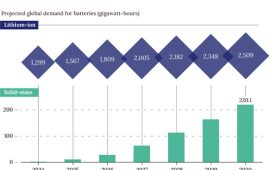Yes, I live in Bengaluru, and yes, my neighbourhood is the epicentre of India’s startup ecosystem. Still, I was struck by the manner in which the person at the adjacent table at Third Wave Coffee greeted his friend. “What’s your hustle, man?”
Over the past decade, the word ‘hustle’ has made inroads into the vocabulary of the country’s tech industry. In a positive sense, it means different things: to move fast and get things done; to work hard and for long hours; to earn a second income; to do freelance work in the gig economy; or to start up a new business.
In a not-so-positive (okay, negative) sense, it also means being sharp, pushy, unscrupulous, fake or downright scamming people. In an age when the meanings of words can be subjective— depending on the identity of the person using them and the specific context of their usage—it can be pretty difficult for a third person to understand what a ‘hustle’ is.
Having long associated hustling with pulling a fast one (or, in Indian parlance, putting a topi or cap on someone’s head) I am not comfortable with the word being used to describe entrepreneurship in our country.
We have a long history of associating entrepreneurship (and business in general) with dubious practices, and it is only recently—perhaps just in the past couple of decades—that it has gained respectability. As Majrooh Sultanpuri’s lyrics for the 1956 Hindi film C.I.D. go, “khud kaate gale sab ke, kahe iss ko business” (you cut throats and call it business). The problem with ‘hustling’ in popular usage is that it can legitimize an amoral approach to business, investors, employees and customers.
I decided to track down how ‘hustle’ came to acquire its contemporary meaning. It turns out that for most of the past century, the word described what African-American people in the United States had to do to make a living in a world that was stacked against them. By the early 1990s, hip-hop artists in the US were using the term to describe their lifestyles that combined cultural and business entrepreneurship. From there, it travelled to the American tech industry, where it initially came to mean a hardworking, hard-selling approach to business.
Tracing this history, NPR’s Isabella Rosario writes that, “Black rappers made hustling cool, weaving it into a narrative about Black resilience and self-empowerment. But importantly, their lyrics acknowledged that hustling was what Black people needed to do to survive in a rigged system. The work itself—selling drugs, working long hours, taking on multiple side-gigs—was not glamorous. Instead, the strength and ingenuity needed to toil through this hard work was what was glorified.”
So we have ‘hustle culture,’ which refers to a mode of life where one works long hours, is constantly responding to emails, is on calls at ungodly hours, postpones vacations and trades off leisure for business targets and higher valuations. This can be a good thing. Winning in a competitive marketplace requires dedicated, coordinated effort. As I wrote in a previous column about the misplaced outrage over 18-hour work days, “‘Work-life balance’ is often misunderstood. There is no single point at which work, life responsibilities and leisure balance for everyone at every point in time… We all struggle to achieve this balance, if at all we ever do. The good news is that if you work hard and learn fast, you will be able get closer to your desired balance.” But it can also be a bad thing, for instance when companies exploit employees and employees who engage in faking hard work in the name of hustle culture. China’s tech industry leaders no longer valorize the “996 culture” (9am to 9pm, 6 days a week) as they used to a few years ago. The backlash is taking many forms, one of which is tang ping (“lying flat”), a rejection of stress, overwork and the career treadmill.
Then there is the side-hustle, a way of earning an extra second income while working on a full-time job. With the emergence of the gig economy, side-hustle opportunities became widely available and easily performable. Time and scruples are the only constraints. It is one thing for a software engineer to do graphic design for another client after office hours, but entirely another to freelance for a competitor. During the pandemic, the term ‘moonlighting’ was erroneously used to describe what ought to be called ‘two-timing,’ where people working from home for one company were doing similar work for another. Moonlighting can be cheating if there is conflict of interest or wilful dishonesty.
It is difficult to build a thriving startup ecosystem by design. Many countries have tried, throwing large sums of money, people and real estate at such projects in bids to replicate the magic of Silicon Valley in California, US. Only a few have succeeded.
India—especially Bengaluru—is among them. It is in India’s interests to reinforce the view that startups and entrepreneurship are about innovation, hard work and a scrupulous route to success. Words have power, because they create mental models that then drive behaviour. We should be careful with hustling.










